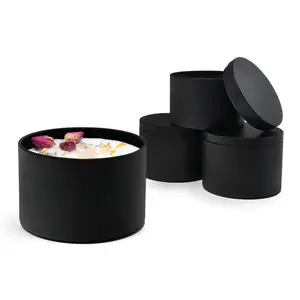Candle Questions: Understanding the Essentials
Candles have long been a source of illumination and ambiance, yet they also spark a multitude of questions regarding their use, safety, and maintenance. Whether you are a novice getting into candle-making or a seasoned enthusiast, understanding the common candle questions can enhance your experience and ensure you benefit fully from these delightful products. Here we explore the most frequently asked questions related to candles, their types, applications, and qualities.
Types of Candles: Addressing Your Candle Questions
Candles come in various types, each serving a unique purpose and offering a distinct experience. Here are some common types that often generate questions:
- Votive Candles: Small, typically cylindrical candles that are often placed in holders. They are popular for creating intimate atmospheres.
- Tea Light Candles: Small and contained, tea lights generally last around 4-6 hours and are frequently used in decorative arrangements.
- Pillar Candles: Larger and more versatile, these candles can stand alone and are often used for decoration as well as a light source.
- Scented Candles: Infused with fragrances, scented candles are designed to enhance your living space with pleasant aromas while also serving as decorative elements.
- Container Candles: Candles poured into jars or vessels, making them easy to burn and providing safety against spills.
- Beeswax Candles: Made from natural beeswax, these candles are known for their purity and natural honey scent, often fetching higher prices due to their organic qualities.
Function and Feature: Answering Candle Questions About Usability
Understanding the functionalities and distinctive features of candles is vital for making the best choices. Here’s what to consider:
- Burn Time: The duration for which a candle burns can vary based on its size and material. Questions related to how long a specific type might last are common.
- Fragrance Throw: Scented candles can vary in how far their fragrance can disperse into a room, prompting queries regarding effectiveness based on size and quality.
- Safety: Many consumers want to know how to safely burn candles to prevent incidents like soot buildup or unsupervised flames.
- Wax Types: Questions often arise about whether paraffin, soy, or beeswax affects burning duration, scent throw, and overall safety.
- Wick Type: The type of wick used (cotton, wooden, etc.) can influence the candle’s burn quality and safety.
Scenarios for Candle Use: Common Candle Questions in Everyday Life
Candles are versatile and can be used in various scenarios, which leads to specific questions about their appropriateness:
- Home Decor: How can candles be used effectively to enhance interior aesthetics? This is a popular query.
- Special Occasions: Many people wonder how to incorporate candles into weddings, parties, or romantic dinners safely and beautifully.
- Relaxation and Aromatherapy: Questions often arise regarding the best scented candles for relaxation or creating a calming atmosphere.
- Seasonal Events: What types of candles are best for holidays like Christmas, Halloween, or birthdays? This can dictate seasonal purchases.
How to Choose the Right Candle: Essential Candle Questions to Consider
The process of selecting the right candle can be daunting, leading to numerous questions. Here’s a simple guide to follow:
- Consider the Purpose: Decide if your primary use will be for décor, fragrance, or light. This helps narrow down options.
- Material Matters: Understand the differences between wax types. For instance, soy wax candles may burn longer but may not yield as strong a scent as paraffin.
- Size and Burn Time: Reflect on how long you wish for the candle to burn. Larger candles typically last longer but may also cost more.
- Fragrance Sensitivity: If you or your guests have sensitivities, opt for fragrance-free options or low-scented varieties.
- Aesthetic Compatibility: Choose candles that match your décor style – whether that’s modern, rustic, or classic.






















































